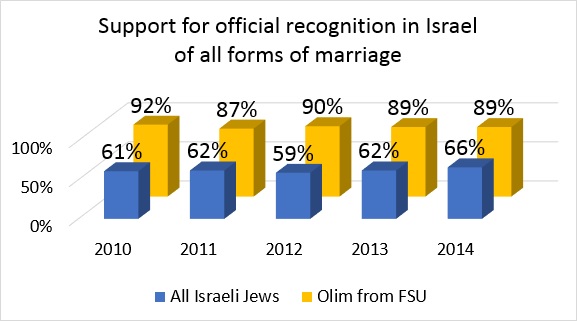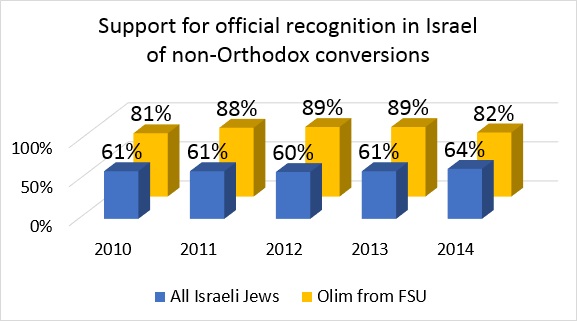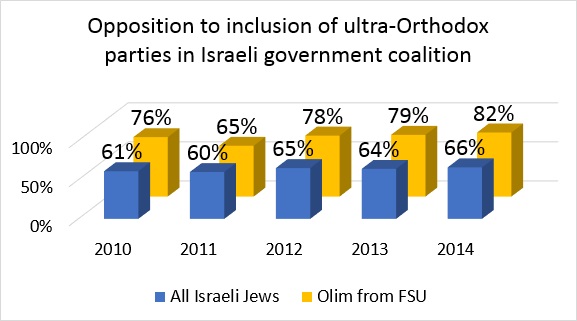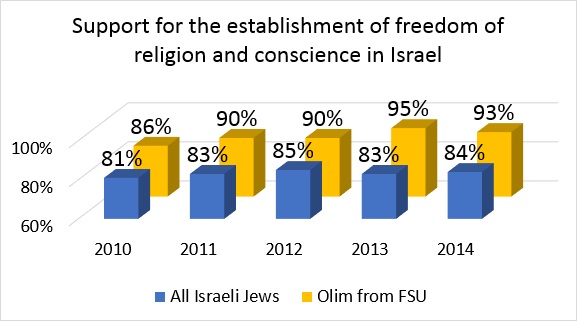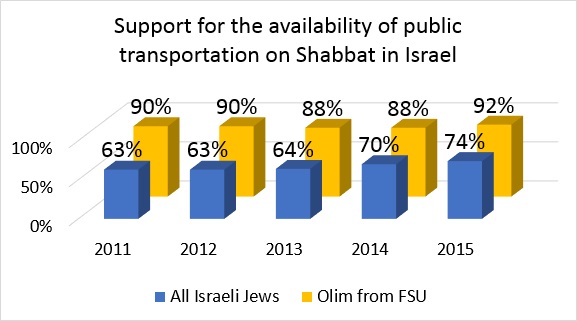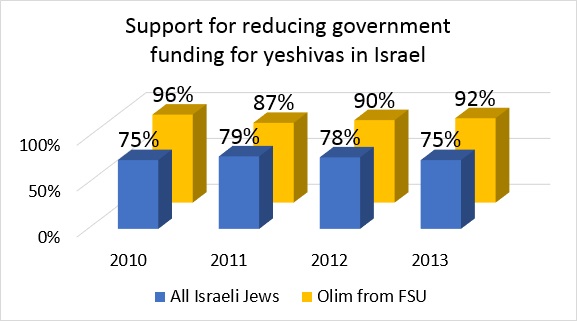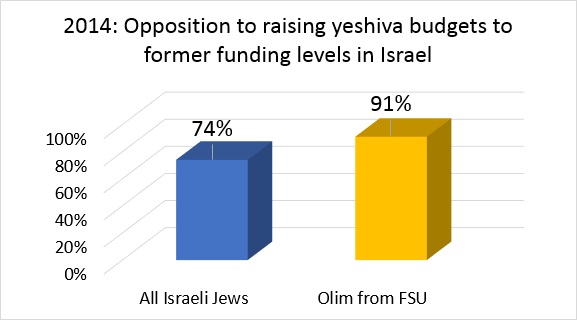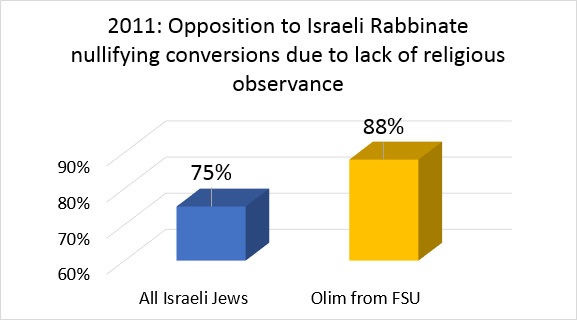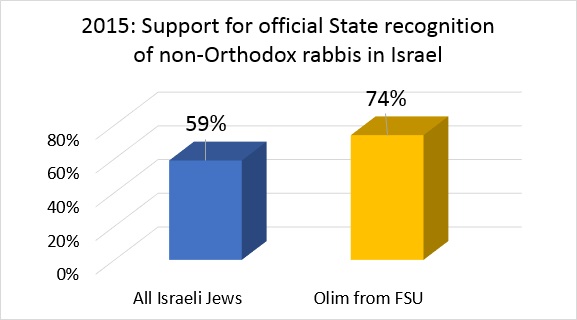Where do these immigrants stand on Religion and State?
Analysis of Israelis from the Former Soviet Union
The graphs below show the opinions held by FSU olim in Israel, as compared to the general, Jewish Israeli public. It should go without saying that this demographic is the most adversely affected by the Orthodox Rabbinate's monopolistic powers, and there is no way one could envisage the successful absorption of the FSU immigrant population into Israel society if these issues are not resolved.
David Bogomolny 19/08/2015 01:41
Tags: olim · polling · analysis
Such a tremendous percentage of Israel’s population could potentially tip the political scales on issues of religion and state. Yet, for a variety of reasons the political parties representing this population have not championed their cause.
A distinct focus for Hiddush is our systematic polling of public opinion, aimed at both providing a better understanding of the positions of different segments of Israeli society, as well as an advocacy tool. We believe that these insights into Israeli society are of particular interest to our partners and readers overseas because so much of the Israeli-Diaspora discourse suffers from misinformation about “what do Israelis really want?”
This bears special significance when it comes to the clash of religion and state, in which we consistently and continuously see a wide gap between the positions expressed and acted upon by Israeli politicians on the one hand, and the public’s will on the other. Confusing the pronouncements of politicians with the will of Israelis is an understandable but grievous mistake.
One key population to consider is the community of immigrants from the Former Soviet Union, making up roughly 15% of Israeli society. Today, we shed light on positions held by this community, extracted from Hiddush’s ongoing polling. Such a tremendous percentage of Israel’s population could potentially tip the political scales on issues of religion and state. Yet, for a variety of reasons the political parties representing this population have not championed their cause; and sadly, the Jewish foundations most committed to promoting the integration of FSU olim into Israeli society have also avoided these thorny issues. It is our hope that this focused analysis of the positions of FSU olim on matters of religion and state will help not only deeper our understanding of the complex breakdown of views and positions of Israelis, but will contribute towards bridging the gap and encouraging the FSU-oriented political parties and foundations to more faithfully reflect their constituency’s views and needs.
The graphs below show the opinions held by FSU olim in Israel, as compared to the general, Jewish Israeli public. All of Hiddush's public opinion polling has been conducted by the Rafi Smith Polling Institute since Hiddush’s founding.
It should go without saying that this demographic is the most adversely affected by the Orthodox Rabbinate's monopolistic powers, and there is no way one could envisage the successful absorption of the FSU immigrant population into Israel society if these issues are not resolved - first and foremost, the right to marry!
